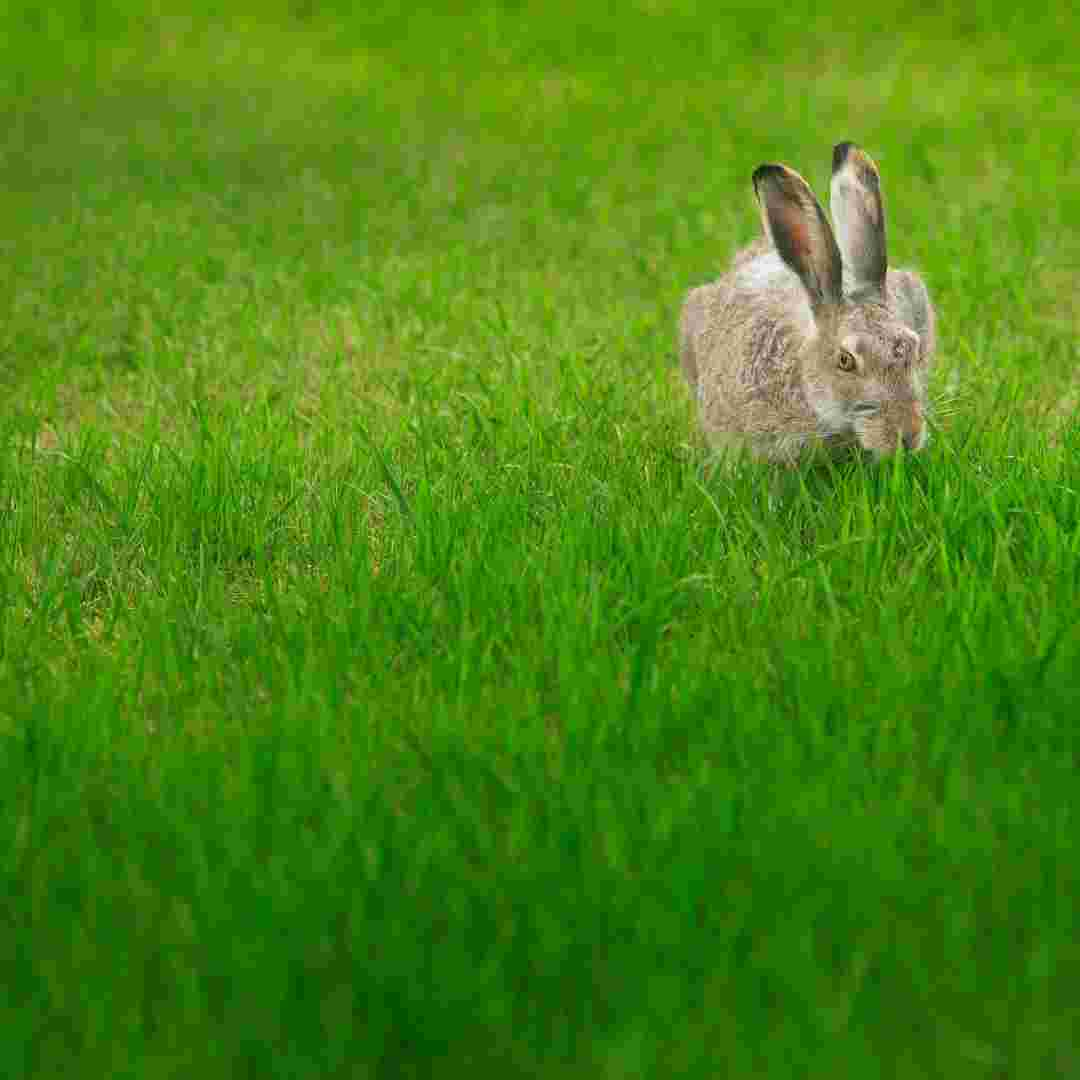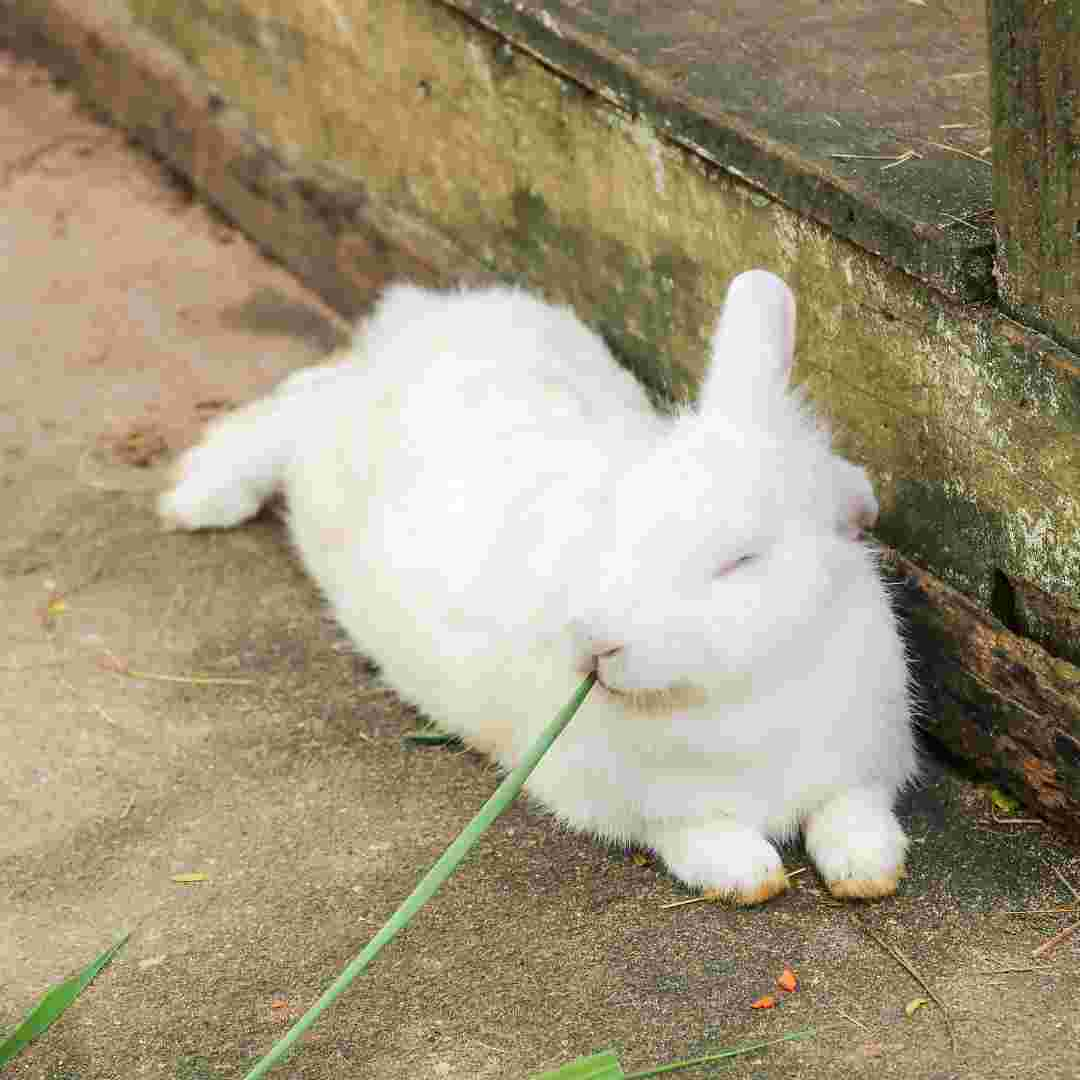Contents Table
Introduction
Hay Benefits Rabbit Nutrition
Hay's Role in Rabbit Nutrition
Selecting the Best Rabbit Hay
The Importance of Hay for Rabbit Digestion
Introduction of Hay to Rabbit Diet
Q&A
Conclusion
Introduction
As herbivores, rabbits eat largely vegetation. Rabbits should eat hay daily. Hay gives them nourishment, aids digestion, and wears down their growing teeth. It also contains fibre, which aids digestion. Hay also offers rabbits different textures and flavours. For these reasons, rabbits should always eat hay.
Hay Benefits Rabbit Nutrition
Hay is crucial to rabbits' diets and offers several nutrients. Rabbits need daily hay to stay healthy.
Hay is high in fibre, which rabbits need for digestion. Fibre keeps the digestive system working and prevents constipation and bloating. It also provides natural wear and tear, keeping teeth healthy.
Hay is rich in vitamins and minerals. Vitamins A, D, and E, calcium, phosphorus, and magnesium are abundant. These vitamins and minerals are vital to rabbit health and development.
Hay is rich in protein, which helps build muscle. Protein keeps the rabbit's coat glossy and immune system healthy.
Finally, rabbits get energy from hay. It gives rabbits the calories they need to be active.
Hay is crucial to rabbits' diets and provides many nutritional benefits. Rabbits need daily hay to stay healthy.
Hay's Role in Rabbit Nutrition
Rabbits must eat well to stay healthy. Rabbits should eat hay daily.
Hay is cut and dried grass used as animal feed. Its high fibre and low protein and fat content make it perfect for rabbits. Hay keeps rabbits' digestive systems healthy and prevents GI issues. It also wears away rabbits' permanently growing teeth.
Hay should be a rabbit's major food. It should comprise most of their daily diet, with fresh vegetables and fruits accounting for the balance. Since rabbits graze all day, they should always have hay. Dust and mould can cause respiratory issues in rabbits, so feed clean hay.
A rabbit's diet should include hay and a range of fresh vegetables and fruits. These should be given in tiny amounts to avoid digestive issues. You should also give the rabbit a vitamin and mineral supplement to ensure they obtain enough nourishment.
Rabbits need hay for a healthy diet. It should comprise most of their daily diet, with fresh vegetables and fruits accounting for the balance. To ensure the rabbit gets enough nutrients, feed dust- and mold-free hay and a vitamin and mineral supplement.
Selecting the Best Rabbit Hay
For optimal rabbit nutrition, hay is required. Selecting rabbit hay can be difficult, but it doesn't have to be. These recommendations can help you choose rabbit hay.
First, evaluate hay kind. Timothy, oat and alfalfa hay are offered. Timothy hay is the most common rabbit hay because it is strong in fibre and low in protein and calcium. Compared to timothy hay, oat hay has more protein and calcium and more fibre. Alfalfa hay has more protein and calcium than timothy and oat hay, but adult rabbits should not eat it.
Second, choose fresh, mold-free hay. Dusty or mouldy hay can cause rabbit respiratory issues. Choose green, aromatic hay. Avoid yellow or brown hay, which may be mouldy.
Finally, consider hay size. Cutting hay into little pieces makes it easier for rabbits to eat. Break bulk hay into smaller pieces before giving it to your rabbit.
Following these suggestions will ensure you provide your rabbit the greatest hay for their diet. With the correct hay, your rabbit will be healthy and happy.
The Importance of Hay for Rabbit Digestion
Herbivore rabbits eat hay and other plant-based meals for sustenance. Rabbits need hay for nourishment and digestion. Rabbits without hay can die from gastrointestinal stasis.
Hay provides fibre, which rabbits need for digestion. Fibre assists the digestive system by activating intestinal muscles and moving food through the digestive tract. Balanced gut bacteria are essential for digestive health, and fibre helps.
Hay also protects rabbit teeth. Hay keeps rabbit teeth healthy by wearing them down as they grow. Without hay, rabbit teeth might grow, causing pain and eating difficulties.
Finally, hay aids rabbit digestion. Hay stimulates saliva production, which breaks down meals and maintains digestion. Eating hay prevents boredom and promotes foraging.
In conclusion, rabbits need hay for intestinal health. Rabbits without hay can die from gastrointestinal stasis. Thus, rabbits must always have hay.
Introduction of Hay to Rabbit Diet
Offering your rabbit hay is crucial to a balanced and nutritious diet. Rabbits need hay for nutrients, fibre, and digestive health. Tips for feeding your rabbit hay:
1. Start slowly. Increase hay slowly to avoid intestinal distress. Provide a tiny bit of hay daily and gradually increase it.
2. Pick the proper hay. Timothy hay is great for rabbits since it has high fibre and low protein and calcium. Alfalfa hay is bad for rabbits since it's high in protein and calcium.
3. Give hay all day. Rabbits require hay to maintain their digestive systems, so provide it throughout the day.
4. Always have hay. Hay is essential for rabbits, so always keep plenty on hand.
These guidelines will guarantee your rabbit gets the nutrients they need from hay and has a healthy digestive tract.

Q&A
1. Why Should Rabbits Eat Hay?
Hay is high in fibre, which improves rabbits' digestive systems. Hay offers vitamins and minerals and wears down their growing teeth.
2. Which hay is best for rabbits?
Timothy hay is the most common rabbit hay because it is strong in fibre and low in protein and calcium. Other rabbit-friendly hays include oat, meadow, and orchard grass.
3. How much hay should rabbits eat?
Hay, an essential aspect of rabbits' diets, should be available 24/7. For proper nutrition, they should be fed a variety of hay.
4. How does hay assist rabbits?
Hay offers vitamins and minerals, keeps rabbits' digestive systems healthy, and wears down their growing teeth. It prevents tooth overgrowth, which can cause major health issues.
5. Are there risks to feeding rabbits hay?
Old hay can contain mould or germs that damage rabbits. Before feeding your rabbit hay, make sure it's fresh and dust-free. Rabbits need a varied diet, thus hay should not be their only meal.
Conclusion
Hay is vital to rabbits' diets. Healthy rabbits need fibre, vitamins, and minerals from hay. They also benefit from good teeth and digestion. Eating hay keeps rabbits busy and entertained, which is good for them.
